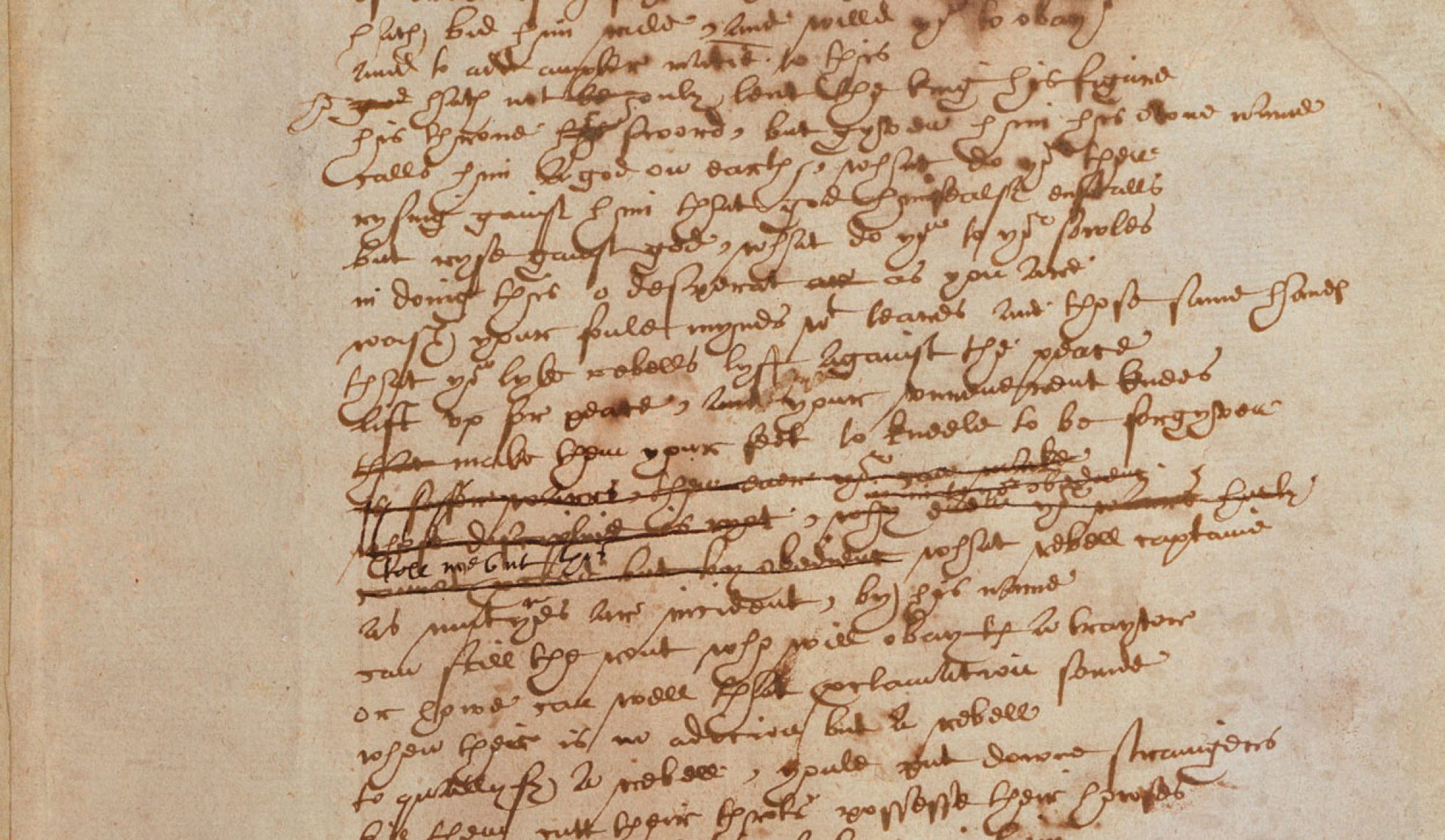I’ve chosen another Puck (+ fairies) passage, starting some lines up from Puck’s famous epilogue, but I think it dovetails nicely with Eli’s.
Enter Robin Goodfellow with a broom
Robin
Now the hungry lion roars,
And the wolf behowls the moon,
Whilst the heavy ploughman snores,
All with weary task fordone.
Now the wasted brands do glow,
Whilst the screech-owl, screeching loud,
Puts the wretch that lies in woe
In remembrance of a shroud.
Now it is the time of night
That the graves, all gaping wide,
Every one lets forth his sprite,
In the church-way paths to glide;
And we fairies, that do run
By the triple Hecate’s team
From the presence of the sun,
Following darkness like a dream,
Now are frolic. Not a mouse
Shall disturb this hallowed house.
I am sent with broom before
To sweep the dust behind the door.
Enter Oberon and Titania, King and Queen of Fairies, with all their train
Oberon
Through the house give glimmering light.
By the dead and drowsy fire
Every elf and fairy sprite
Hop as light as bird from brier,
And this ditty after me
Sing, and dance it trippingly.
Titania
First, rehearse your song by rote,
To each word a warbling note;
Hand in hand, with fairy grace,
Will we sing, and bless this place.
[The song. The fairies dance]
Oberon
Now until the break of day,
Through this house each fairy stray.
To the best bride bed will we,
Which by us shall blessèd be,
And the issue there create
Ever shall be fortunate.
So shall all the couples three
Ever true in loving be,
And the blots of Nature’s hand
Shall not in their issue stand.
Never mole, harelip, nor scar,
Nor mark prodigious, such as are
Despisèd in nativity,
Shall upon their children be.
With this field-dew consecrate,
Every fairy take his gait,
And each several chamber bless,
Through this palace, with sweet peace;
And the owner of it blessed
Ever shall in safety rest.
Trip away, make no stay,
Meet me all by break of day.
Exeunt all but Robin Goodfellow
Robin
If we shadows have offended,
Think but this, and all is mended:
That you have but slumbered here,
While these visions did appear;
And this weak and idle theme,
No more yielding but a dream,
Gentles, do not reprehend.
If you pardon, we will mend.
And, as I am an honest puck,
If we have unearnèd luck
Now to ’scape the serpent’s tongue,
We will make amends ere long;
Else the puck a liar call.
So, good night unto you all.
Give me your hands, if we be friends,
And Robin shall restore amends. Exit (5.1.362-429)
If we’re thinking about what makes a character’s speech distinctive, I chose this passage because at this point, all the fairies sound the same; this is generic fairy-speak at its fairy-est. Part of this is the meter—the tripping catalectic (thank you Hope & Witmore for this word) trochaic tetrameter is earlier in the play employed mostly by Puck, but also by Oberon, whenever they do something incantatory or mischievous; for “serious” matters or conversations, as in Eli’s passage, they use a more courtly iambic pentameter. The former is, of course, the same meter used by the witches in Macbeth; my question is, is the effect of a “sickening see-saw rhythm” that L. C. Knights describes an intrinsic quality to the meter? My hunch is no. The insistent stress of “Now…” that opens many of the lines above feels instead like it’s keeping the time for the dance. I wish I could use Wordhoard for prosodic concordance, to see where else Shakespeare employs this meter, but alas, this feature isn’t available for Shakespeare’s corpus.
Diction might also contribute, and this leads me to more DH findings. I ran two log-likelihood comparisons on Wordhoard: MND against Shakespeare’s corpus (first two figures), and MND against the comedies only (third figure).
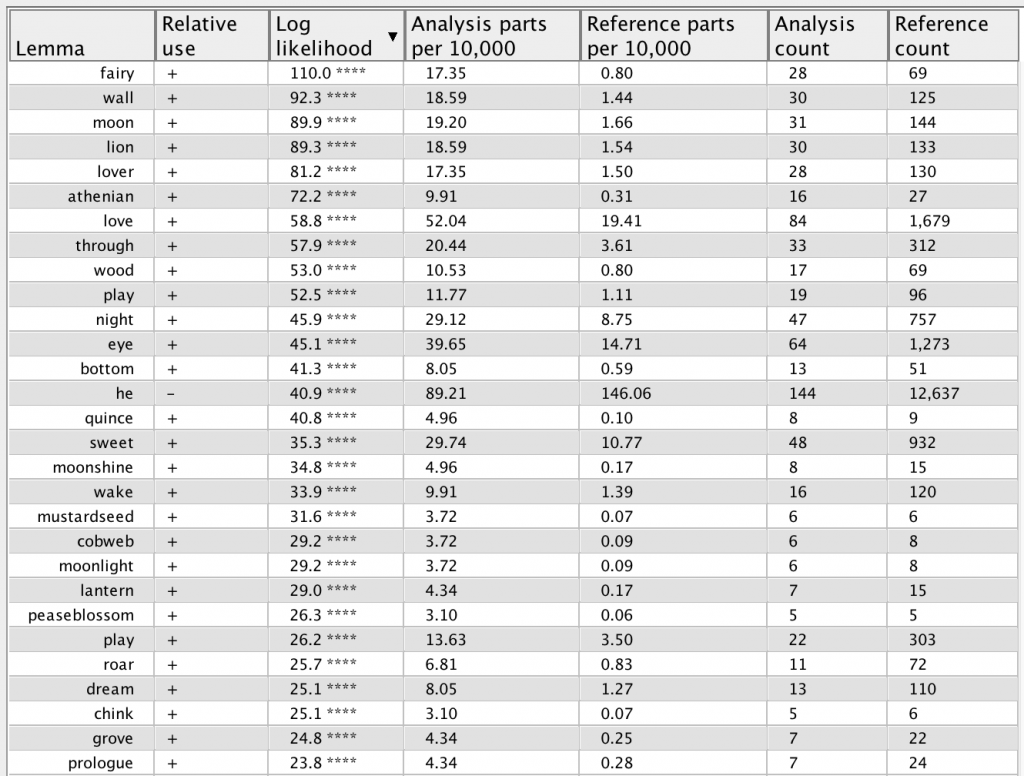
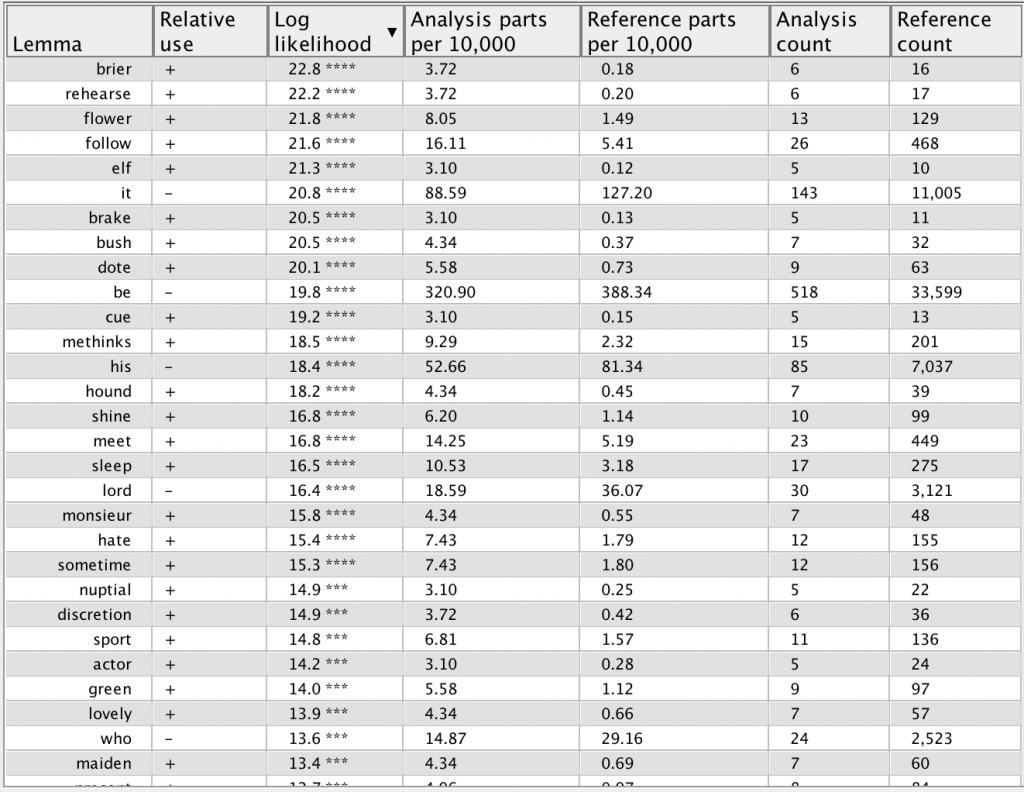
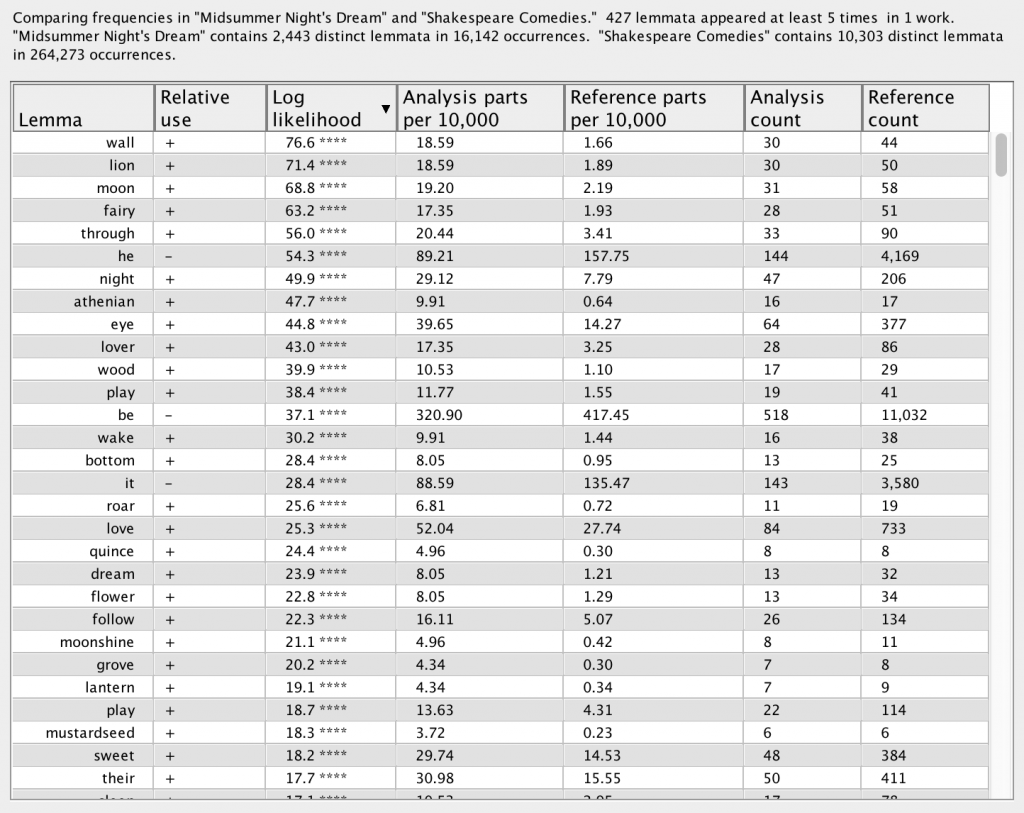
These charts show that this passage incorporates many of the words that make up the unique verbal texture of the play: brier, lion, through, fairy, elf, night, to name a few. It makes sense that the most unique words are those uttered by either the fairies or rustics. (Note the words that made the list by virtue of Bottom’s repetition, e.g. “monsieur.”)
“Through” is an interesting case, at least for a non-Early Modern-specialist like me. At the beginning of 2.1, the unnamed Fairy uses the disyllabic spelling “Thorough” instead of “Through.” I used the EEBO N-gram browser to graph which spelling was more common, and found that “through” really spiked after ~1510.
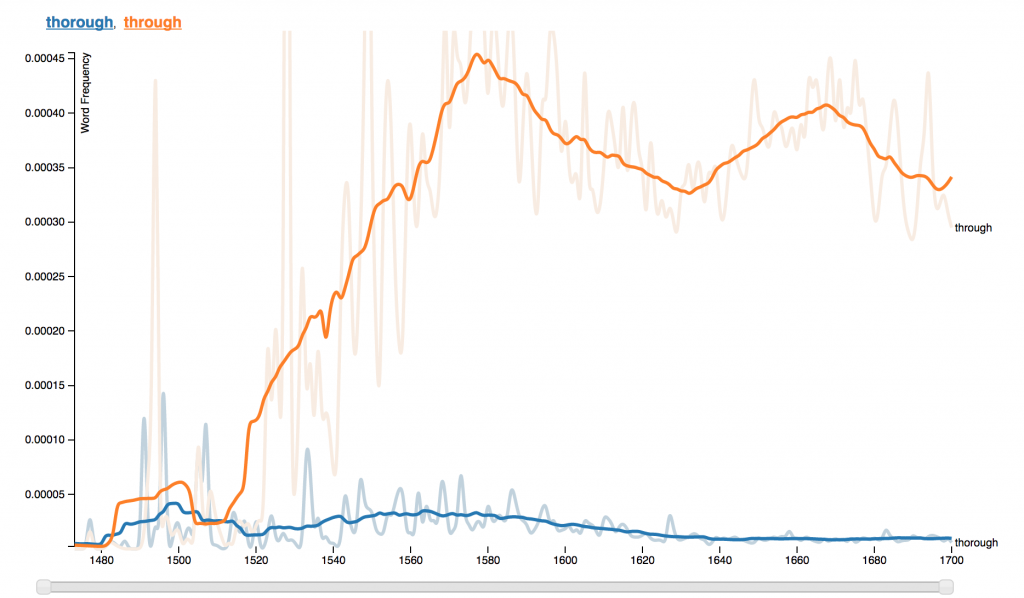
That the lemma “through” should be more commonly found in MND than in the rest of Shakespeare’s corpus is perhaps notable, too; it’s one of those common words we probably wouldn’t notice an increase in without stylometrics. As its usage in the passage above shows, the preposition suggests the “fairy” qualities of quickness, transparency, permeability.
Just a final note. I felt like I kept hearing the fairies drop “be” in interesting ways all over the place, so I used Wordhoard’s nifty “mortality” filter to compare how often “immortal or supernatural” creatures in the play use it, versus use by “mortals.” Well, the mortals use it almost twice as often (66x verses 39x). But looking at the concordances of these instances showed that the fairies more frequently use “be” at the end of a line (cf. “Lord, what fools these mortals be!” as well as instances by Oberon in the passage above.) This stress on the word, and the propensity to pair it with a rhyming word in a couplet, made “be” stand out in the fairy speeches during my first-pass reading—something I misinterpreted as word frequency before looking at the numbers.
I had many failed experiments with CQPweb. While it seems powerful in theory, I can’t seem to get it to function properly.
Thanks for reading this far. Looking forward to hearing everyone else’s findings in class!
Mary
